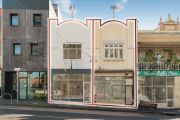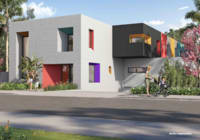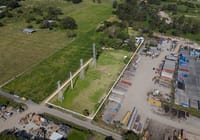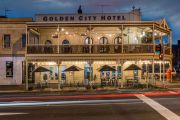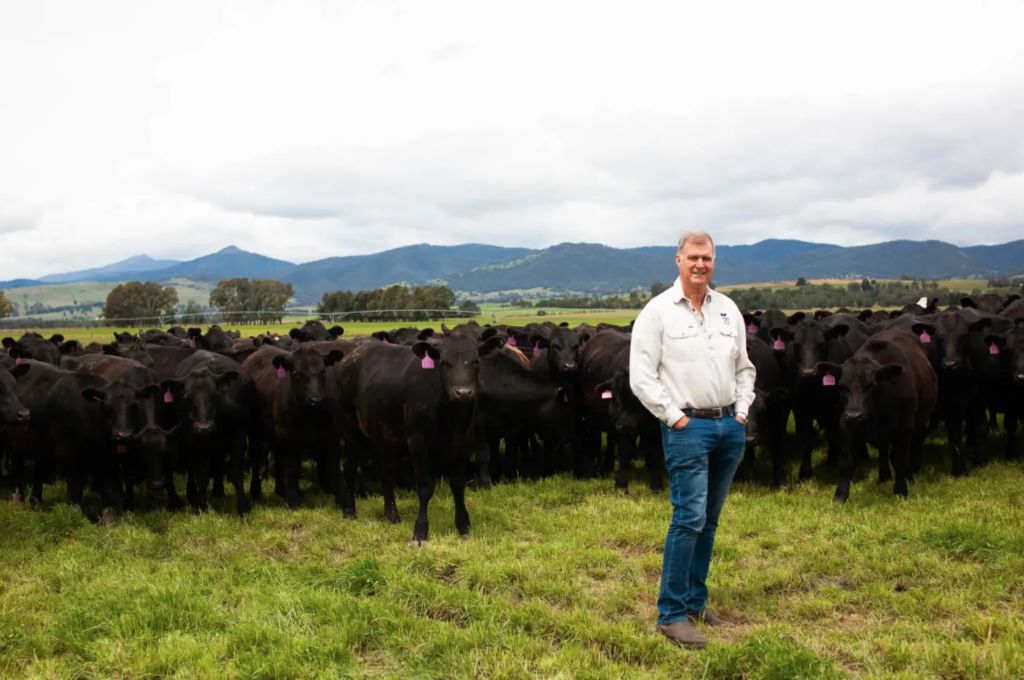
Farmland still offers good value despite price surge: Angus king
Surging rural property values have not diminished the attractiveness of Australian farmland to offshore investors because they are underpinned by some of the best produce in the world, according to one of the country’s leading Angus cattle breeders, Tim Roberts-Thomson.
Mr Roberts-Thomson, who this month settled one of the year’s biggest private farming acquisitions – the $120 million-plus purchase of 6000-hectare Woolnorth Aggregation in north-west Tasmania – said while farmland prices had increased significantly over the last couple of years “so has the price for what you produce”.
Nowhere has that been more noticeable than in the beef cattle sector, where prices paid for prime grazing and cropping country have surged 32.8 per cent on average over the past year, according to the Australian Farmland Index.
That’s been matched by record beef prices, which rose above $10 per kg for the first time this year, according to the benchmark Eastern Young Cattle Indicator.
“Funds investing in Australia still see it as offering farmland at very attractive prices compared to what you pay in the US, so I fully understand why they invest,” Mr Roberts-Thomson told The Australian Financial Review.
He added that unlike the US and Europe, where farmland is heavily subsidised, Australian farmland is not subsidised in any way, meaning farmers have to use it as efficiently as possible.
Layered on top of all this, is the growing demand worldwide for premium Australian produce, including the grass-fed Angus beef cattle Mr Roberts-Thomson’s TRT Pastoral produces across its sustainably farmed aggregations in Victoria and Tasmania.
“People have realised the importance of the food we produce. Confidence in the beef industry is high.
“We can’t keep up with demand,” he said.
This confidence drove the purchase of the Woolnorth property, from Chinese billionaire Lu Xianfeng’s Van Dairy Group – a large chunk of the Van Diemens Land Company that Van Dairy acquired for $280 million in 2016.
(Earlier this year Van Dairy sold 11 VDL dairy farms to Melbourne fund manager Prime Value for about $62.5 million. It has retained about 11,000 hectares, milking over 16,000 cows).
Woolnorth is about an hour from the Flowerdale family farm where Mr Roberts-Thomson was born. The family later moved to a farm at Beaudesert on Queensland’s Scenic Rim, before Mr Roberts-Thomson forged a successful corporate career in telecommunications – he and his brother Barry once owned 30 per cent of telecom giant Hutchison Australia, which owns half of Vodafone Australia.
In 1994, he bought his first grazing property, Howquadale Station in Mansfield in the foothills of the Victorian Alps, where his TRT Pastoral (a family business that includes his son James and daughter Madeleine) runs an elite Angus herd of 1400 breeders.
Then in 2017, he paid $45 million to buy the King Island Aggregation off Tasmania from the Sustainable Agricultural Fund, where TRT Pastoral run a large-scale Angus cattle breeding and finishing enterprise that carries more than 9000 grass fed Angus breeders,
Mr Roberts-Thomson plans to progressively stock Woolnorth with a 7000-strong Angus breeding herd while leasing out the two high-quality dairies.
“It will allow us to build a 17,000-strong Angus herd, one of the largest in Australia,” Mr Roberts-Thomson said.
Nutrien Harcourts Smithton agent Tony Maguire, who negotiated the sale of Woolnorth, said the property attracted strong interest due to its high rainfall, quality pastures and fertile soil types.
“Enquiry came from both local and overseas groups,” Mr Maguire said.
Mr Roberts-Thomson secured Woolnorth after lengthy negotiations with Van Dairy to increase the size of the offering.
“At first Van Dairy was only offering 2200 acres (890 hectares), which was not enough for what we wanted to do. It worked out well; we got 6000 hectares.”
TRT Pastoral plans to send down 1000 pregnant heifers every year until it is fully stocked with breeders.
“It will be a gradual process. It’s very hard to get 7000 breeders on the open market, so we will have to produce a lot of them internally,” Mr Roberts-Thomson said.
“It’s an iconic property, we want to take it forward not backwards.”

